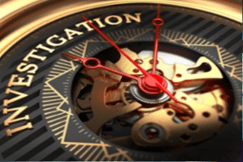How to Investigate Fraud Claims

When it comes to uncovering the truth about fraud suspicions, the job is best left to experienced forensic accountants. They’re trained to follow the footprints criminals may leave behind and help build a defensible case. Here are some best practices that forensic accountants use to conduct interviews and gather evidence.
Applying a methodical approach
Although business owners may want immediate results, forensic accountants don’t rush into the interview process. They take time planning what to accomplish, anticipating obstacles and resistance, and organizing the interview from the opening comments to the closing strategy. Before they start the interview process, forensic accountants will:
- Gather evidence,
- Decide who to interview,
- Organize the structure of the meeting and its location, and
- Determine the content and types of questions to ask.
In addition, these experts are aware of the legal pitfalls surrounding fraud interviews and can avoid putting companies at risk for charges of discrimination or harassment. They take care to comply with federal and state laws.
Outside professionals are also removed from the emotional aspects of the investigation. And unlike company insiders, forensic accountants have no stake in the outcome, so they can diffuse anger and anxiety from suspects, witnesses and victims during the investigative process.
Interviewing suspects and witnesses
When deciding the types of interview questions to ask, forensic accountants have different interview styles, depending on their personalities and backgrounds. The specific information experts ask for depends, in part, on the circumstances and individuals involved.
An interview usually starts with introductions and rapport-building. Experts typically explain the purpose of the interview and ask questions to which the answers are already known so they can observe the subject’s demeanor and degree of candor.
Then interviewers transition to more specific questions. They encourage the interviewee to do most of the talking — and may even use silence as a tool, as people being interviewed frequently try to fill conversation gaps. An employee may disclose information unintentionally, provide clues or suggest an unplanned, but fertile, line of questioning. Before ending the interview, experts confirm the information elicited. They also ask open-ended questions about other individuals to interview and areas to explore.
Even after extensive preparation, interviews rarely go as planned. Forensic accountants are trained to deal with unforeseen possibilities. By listening actively during the meeting, the interviewer is ready to pursue unexpected lines of questioning that can help advance or broaden the investigation. This is especially true at the beginning of a complex investigation involving numerous suspects. Trained interviewers also look for nonverbal behaviors or body language that can indicate deception.
Gathering evidence
Another key task fraud experts perform during an investigation is collecting evidence from the company’s internal documents. Examples include personnel files, internal communications, financial records, security camera recordings, and physical and IT system access records. Locating this data may require the forensic accountant to perform computer examinations. Experts also consider external sources of evidence, such as public records, customer and vendor information, media reports, and private detective reports.
Forensic accounting specialists have been trained on how to review and categorize internal and external evidence, conduct computer-assisted data analysis, and test various hypotheses. When experts are finished conducting interviews and gathering evidence, they generally report any findings. Attorneys usually determine the appropriate format for the report and how distribution will be affected by the need to protect legal privileges and avoid defamation.
Avoid do-it-yourself investigations
When business owners and managers suspect fraud, the use of an outside forensic expert, along with an understanding of the investigative process, can facilitate matters and minimize potential losses. A trained professional can help gather evidence that will withstand courtroom scrutiny. Contact us here if you have any questions.







